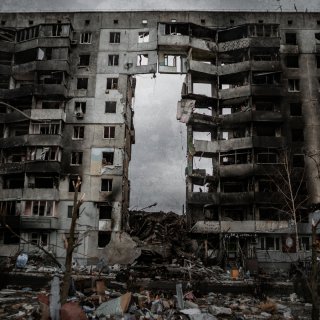
Predictions, forecasts, peace agreements: when will the war between Ukraine and russia end
As the war drags on, the question when will the war in Ukraine end keeps surfacing more often. People search for predictions, trust pseudo-experts, and even pay money just to learn a specific date.
But is this search for hope potentially harmful? Can anyone really know when the war in Ukraine will end, and who actually has the answer?
Who Tries to Predict When the War in Ukraine Will End?
From content creators to media outlets, many don’t hesitate to exploit this topic. Type “when will the war in Ukraine end” into Google, and you’ll often be greeted with forecasts from astrologers, tarot readers, or biblical prophets. Their content is easy to spot — emotional headlines, clickbait thumbnails, and unfamiliar names claiming to be experts.
Some predictions appear more credible — for example, mathematical models or comments from military analysts. But even those rarely stand the test of time.
What’s most alarming is how consistent this type of content is. A “new, accurate” prediction for when the war in Ukraine will end appears almost monthly — and demand for it persists. Why do people keep making such predictions if none of them come true? The answer is simple: attention, manipulation, monetization, and reach. Creators benefit, while the public is left misled.
It’s important to pause when you see another supposed date for peace. Ask yourself: why am I looking for this content? What am I hoping to find? Do I really need this kind of “comfort”? War is terrifying — but it’s even more dangerous to live in a fantasy.
Why Predictions About the End of the War Are Harmful
On one hand, it’s understandable why people want a final date. After all, Ukrainians live under constant stress and uncertainty.
On the other hand, chasing a mythical “exact date” weakens our collective resolve. Civilians begin to relax, hoping that the stars will somehow decide that peace is near. Some start to pull back from supporting the military, ignoring news from the frontlines — even when things are objectively getting worse.
There’s a dangerous belief that maybe it’s time to stop doing anything and just “wait it out.” But history teaches us that russia plays the long game. It’s willing to use any tactic to fulfill its imperial ambitions. When the war in Ukraine will end won’t be determined by wishful thinking. It will depend on the collapse of the aggressor — a process far slower and more complicated than many hoped for in 2022. Despite sanctions, russia continues to circumvent restrictions, restock weapons, and recruit mercenaries around the world.
So ask yourself: are we truly prepared for that reality? Or are we still hoping that Googling “when will the war in Ukraine end” will bring relief?
Can Negotiations Bring the War to an End?
Former U.S. President Donald Trump has long promoted a swift resolution to the war. Since March 2025, the U.S. has attempted to mediate peace talks between Ukraine and russia.
Trump believed he could influence Putin and end the war diplomatically. But even America has begun to lose faith in that approach. On May 1, 2025, the U.S. Department of State announced it would no longer act as a mediator in determining when the war in Ukraine will end. On July 3, after a direct phone call with putin, Trump admitted that the russian leader has no intention of ending the war.
That should be a wake-up call for those in Ukraine still hoping for a quick diplomatic resolution.
Has the negotiation process helped reduce violence on the front lines? Not really. russia declared an “Easter ceasefire” from April 19–21, but it was largely symbolic. For instance, on May 21–22, russia shelled the Sumy region 70 times in a single day. On May 24–25, 631 aerial weapons were used across Ukraine. russia continues advancing in Donetsk, and its actions show no genuine desire for peace.
These failed negotiations remind us of one critical point: Ukraine is a sovereign state. We are the ones who will bring about the end of this war — not outside powers. Hoping that “adults in the room” will fix everything for us only delays action.
So, Who Really Knows When the War in Ukraine Will End?
Short answer: no one.
Looking for forecasts or set dates for when the war in Ukraine will end only creates false hope. It shifts responsibility onto “experts,” algorithms, or international partners — and away from real action.
There’s only one force that can ensure Ukraine’s victory: its defense forces. While we wait for sanctions to take effect, for frozen russian assets to be transferred, or for the russian economy to collapse, our military is delivering real, measurable damage.
Those of us in the rear must do everything possible to support them.
We’re either in the military, or working for it. There are countless ways to contribute: join the defense forces, donate blood, volunteer, fundraise, or run local support banks.
Action — not predictions — determines when the war in Ukraine will end. Apathy only worsens outcomes and pushes us further from victory.

